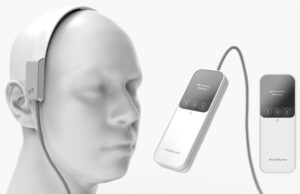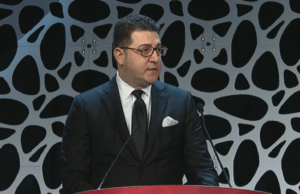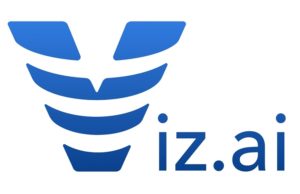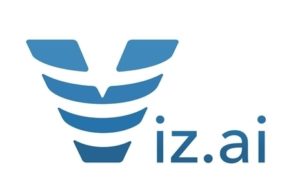Tag: large vessel occlusion stroke
Ceribell receives US FDA Breakthrough Device designation for in-hospital LVO stroke...
Ceribell has announced that the US Food and Drug Administration (FDA) has granted Breakthrough Device designation to its large vessel occlusion (LVO) stroke detection...
MindRhythm’s prehospital LVO stroke identification device submitted for US FDA clearance
MindRhythm has announced that it has officially submitted a de novo application to the US Food and Drug Administration (FDA) seeking clearance for its...
Individualised BP management during thrombectomy shows no benefit over standard approach
The DETERMINE randomised controlled trial (RCT) has found that individualised blood pressure (BP) management during mechanical thrombectomy for patients with anterior large vessel occlusion...
SELECT LATE trial gets US$7 million funding boost to evaluate stroke...
University Hospitals (UH) Cleveland Medical Center in Cleveland, USA has been awarded US$7 million in research funding by the Patient-Centered Outcomes Research Institute (PCORI)...
Stroke thrombectomy: Limitless potential or a success story nearing its final...
Mechanical thrombectomy has gone from strength to strength in the treatment of acute ischaemic stroke over the past decade—progressing beyond early-window large vessel occlusions...
RapidPulse’s precise cyclic aspiration technology “highly effective and safe” in LVO...
A study recently published online in the journal Interventional Neuroradiology has provided multicentre trial results that demonstrate the promise of using precise cyclic aspiration in the...
ZODIAC trial reveals clinical benefits of zero-degree head positioning prior to...
Laying large vessel occlusion (LVO) ischaemic stroke patients flat with their heads at a zero-degree angle prior to a mechanical thrombectomy procedure has resulted...
Newly published PROST trial results find Preset non-inferior to Solitaire in...
Final results from the PROST randomised controlled trial (RCT) have been published in JAMA Neurology and—according to the study’s leading investigators—provide evidence that thrombectomy...
Q’Apel Medical launches new-generation Hippo aspiration system for stroke thrombectomy
Q’Apel Medical has launched a new-generation aspiration technology, the 072 Hippo aspiration system, which has been developed for patients suffering from a stroke due...
Upcoming technologies set to forebear “new era” in prehospital stroke care
While the latest thrombectomy techniques, thrombolytic drug candidates and even neuroprotective agents are the source of much discussion in today’s neurovascular space, there is...
EVT with poor reperfusion linked to worse outcomes than medical management...
Endovascular therapy (EVT) treatments that achieve poor reperfusion have been found to result in inferior clinical outcomes compared to best medical management (BMM) in...
Systematic review and meta-analysis find stroke thrombectomy safe and effective in...
A study presented at last week’s Society of NeuroInterventional Surgery (SNIS) annual meeting (31 July–4 August 2023, San Diego, USA) noted that mechanical thrombectomy—in...
SELECT2 results support thrombectomy use in stroke patients with large infarct-core...
An international clinical study has found that patients experiencing a ‘large’ stroke—characterised by a greater infarct-core volume on imaging—had a dramatically better recovery after...
Direct thrombectomy fails to show non-inferiority versus bridging therapy in early...
The international DIRECT-SAFE trial has produced results indicating that intravenous thrombolysis (IVT) plus mechanical thrombectomy—commonly referred to as bridging therapy—should continue to be recommended...
Preliminary data indicate improved neurological outcomes with alteplase versus placebo
As per early findings from the CHOICE randomised controlled trial (RCT), the use of adjunct, intra-arterial alteplase—among patients with large vessel occlusion (LVO) acute...
Phenox expands acute ischaemic stroke portfolio with global launch of pRESET...
Phenox has added to its extensive technology portfolio with the introduction of the pRESET 6-50 mechanical thrombectomy device for the treatment of acute large...
North Carolina updates stroke triage and transport protocol
North Carolina has updated its emergency stroke care protocol—a move applauded by the Get Ahead of Stroke campaign. The protocol, which went into effect...
Viz.ai receives CE mark to bring AI-powered stroke care software to...
Viz.ai has been awarded a CE mark for its artificial intelligence (AI)-powered stroke care software, affirming its conformity with European health, safety and environmental...
Higher incidence of severe stroke found in COVID-19 patients
Among people who have strokes and COVID-19, there is a higher incidence of severe stroke as well as a higher incidence of stroke in...
Vesalio initiates new FDA stroke study following “milestone” VITAL trial enrolment
US medical device company Vesalio has announced the start of enrolment in the Vesalio CLEAR study—an acute ischaemic stroke FDA investigational device exemption (IDE)...
First patient enrolled in MindRhythm trial to assess LVO stroke diagnostic...
MindRhythm, a US medical technology company focused on preventing neurological injury in stroke, has announced the enrolment of the first patient in a multicentre...
Large-vessel stroke: A feature of COVID-19 in the young
A case series of large-vessel stroke in patients younger than 50 years of age has been published in The New England Journal of Medicine....
EXTEND-IA TNK Part 2 trial finds no benefit of higher tenecteplase...
With the original trial demonstrating a higher incidence of substantial reperfusion with tenecteplase compared with alteplase prior to endovascular therapy, EXTEND-IA TNK Part 2...
Live from ISC: Wearable brain stimulation could safely improve motor function...
A new, non-invasive wearable magnetic brain stimulation device to improve recovery for stroke survivors has been deemed safe and effective. David Chiu, director of...
Viz.ai adds new capabilities to its AI stroke platform
Viz.ai has launched the next generation of its synchronized care platform for stroke. Viz.ai incorporates cutting edge artificial intelligence with HIPAA-compliant communication to allow...
Although “unperfected”, AI has the potential to accelerate and synchronise stroke...
A recently published systematic review reveals that artificial intelligence (AI) is rapidly being used by major medical centres to identify large vessel occlusions (LVO)...
Superior clinical outcomes for endovascular therapy candidates triaged directly to a...
For patients with emergent large vessel occlusion (LVO) eligible for endovascular therapy, prehospital triage to a more distant comprehensive stroke centre (CSC) compared with...
New results demonstrate ability to automatically detect suspected large-vessel occlusion stroke...
Viz.ai has further advanced the field of stroke imaging and workflow by developing a novel method for the detection of signs of large vessel...
CE mark approval for device to assist in rapid ischaemic stroke...
Cerebrotech Medical Systems has received the CE mark for detection of bioimpedance asymmetry associated with stroke. This latest certification for Cerebrotech’s Intracranial Fluids Monitor (ICF)...
ASTER final data confirm no difference between ADAPT and stent retriever...
The final results of the ASTER randomised controlled trial have confirmed that there was no statistically significant difference between ADAPT (a direct aspiration first...






























